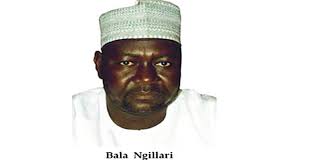The World Bank Group on Wednesday in Washington DC published a new economic impact assessment showing that unless more effort is put into checking the deadly Ebola Virus Disease, economies in the West African sub-region, some of which are large, risk losing up to $32.6 billion by the end of 2015.
Nigeria is the largest economy in West Africa, and indeed Africa, judging by the recent rebasing of its Gross Domestic Product (GDP), followed in no particular order by Cote d’Ivoire and Ghana.
The three economies are expected to lose more if the epidemic currently ravaging Guinea, Liberia, and Sierra Leone, was to significantly infect people in neighbouring countries in the two years.
Already, death toll from Ebola is now put at 3,439 in the three worst affected countries, at the last count.
This is even as Nigeria successfully contained it after an index case, Patrick Sawyer, a Liberian-American imported it, leading to at least five deaths, primarily those who had direct contact.
The new World Bank Group report said it is very uncertain “that the epidemic will be fully contained by December 2014 and in the light of the considerable uncertainty about its future trajectory, two alternative scenarios are used to estimate the medium-term (2015) impact of the epidemic, extending to the end of calendar year 2015.”
A “Low Ebola” scenario corresponds to rapid containment within the three most severely affected countries, while “High Ebola” corresponds to slower containment in the three countries, with broader regional contagion.
According to the group’s new analysis, the economic impact of Ebola were already very serious in the West African countries – particularly Liberia and Sierra Leone – and could become catastrophic under a slow-containment High Ebola scenario.
In broader regional terms, the economic impact could be limited if immediate national and international action stop the epidemic and alleviate the “aversion behaviour” or fear factor that is causing neighbouring countries to close their borders, and airlines and other regional and international companies to suspend their commercial activities in the three worst affected countries.
The successful containment of Ebola in Nigeria and Senegal so far is evidence that this is possible, given some existing health system capacity and a resolute policy response.
The report quoted Jim Yong Kim, the President of the World Bank Group, as saying that “with Ebola’s potential to inflict massive economic costs on Guinea, Liberia, and Sierra Leone and the rest of their neighbours in West Africa, the international community must find ways to get past logistical roadblocks and bring in more doctors and trained medical staff, more hospital beds, and more health and development support to help to stop Ebola in its tracks.
“The international community now must act on the knowledge that weak public health infrastructure, institutions, and systems in many fragile countries are a threat not only to their own citizens but also to their trading partners and the world at large.
“The enormous economic cost of the current outbreak to the affected countries and the world could have been avoided by prudent ongoing investment in health systems-strengthening,” he added.
The World Bank Group is supporting country responses in line with the WHO Roadmap, and is co-ordinating assistance closely with the United Nations and other international and country partners.
A key issue going forward, the report believes, would be to re-establish investor trust so that as the epidemic is contained, domestic and international investment can return.
(Daily Independent)














